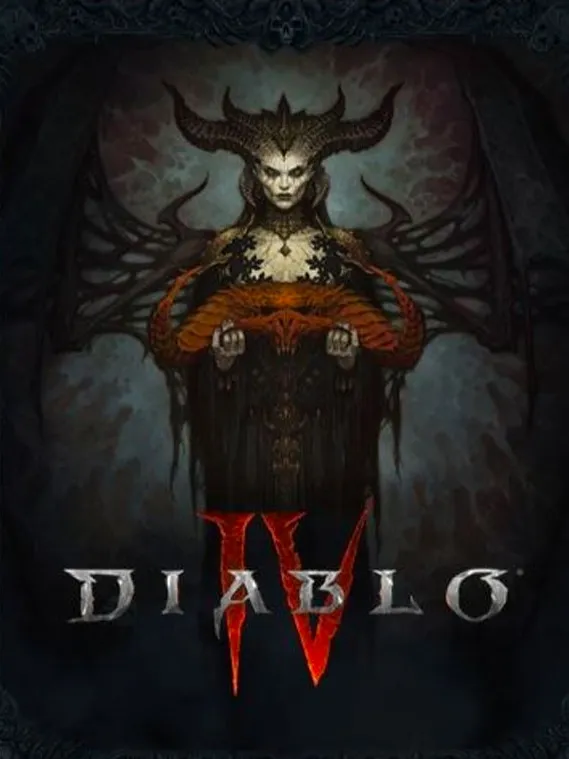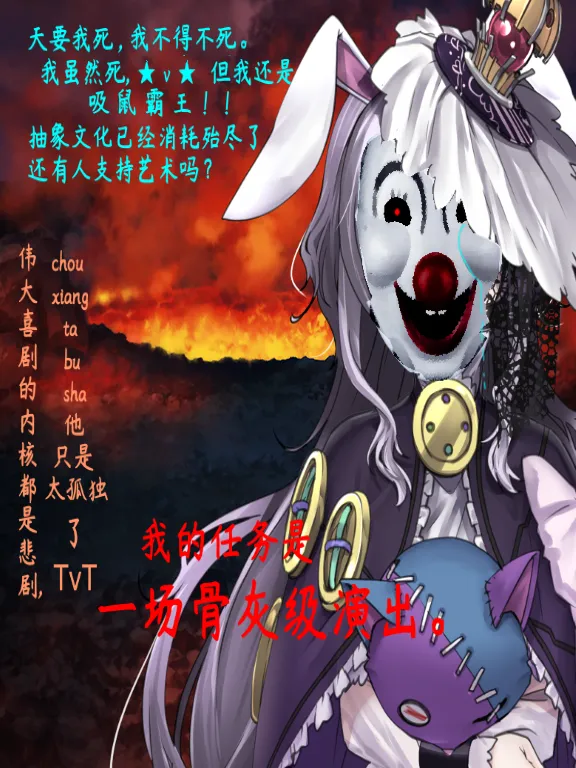After Navalny, What Next For Russia’s Opposition?
阿列克谢·纳瓦尔尼无疑是俄罗斯反对派中最耀眼的明星。然而,尽管他有魅力和精力,但他未能将整个反对派(或至少大多数人)团结在他的旗帜下。他也没有努力做到这一点,经常采取极其强硬和毫不妥协的立场。
他在反腐败基金会(ACF)的同事们也采取了同样的做法,他们将自己定位为主要的反对派力量。他们一再表示不愿意与其他反对派运动合作,甚至不愿意与之并肩作战,如马克西姆·卡茨、米哈伊尔·霍多尔科夫斯基和其他反对派人士和运动的支持者。
Alexei Navalny was undoubtedly the brightest star in the Russian opposition. However, for all his charisma and energy, he failed to unite the entire opposition (or at least the majority) under his banner. Nor did he strive to, often taking an extremely tough and uncompromising stance.
His associates in the Anti-Corruption Foundation (ACF), who position themselves as the main opposition force, take the same approach. They have repeatedly shown their unwillingness to work with or even appear alongside other opposition movements, such as supporters of Maxim Katz, Mikhail Khodorkovsky, and other opposition figures and movements.
俄罗斯迫切需要负责任的政治家,他们能够抓住新解决方案的需求,包括在国外代表俄罗斯人的方式。需要有一个得到广泛支持的组织来捍卫俄罗斯人民的利益,而不是寡头的利益。这样一个组织还可以在未来与莫斯科的潜在谈判中与西方合作。
Instead of demonstrating collaborative leadership, the ACF sidelines the opinions of people outside the organization as if they are of little interest. If this approach continues with Yulia Navalnaya – and her statements so far indicate it will – it would be extremely naive to expect that she will be able to unite Russia's diverse opposition.
Russia is in dire need of responsible politicians who can grasp the demand for fresh solutions, including a way to represent Russians abroad. There needs to be a widely supported organization that would defend the interests of the Russian people instead of the oligarchs. Such a group could also work with the West in potential future negotiations with Moscow.
俄罗斯反对派的主要问题是,它对自己在当前政治进程中的作用缺乏远见。在两年的战争中,反对派领导人没有提出任何合理的行动计划,并得到了国内外大多数俄罗斯人的支持。他们没有提出提供国际合作伙伴的愿景,而是专注于制作无数的YouTube视频。
唯一的例外是他们呼吁在即将到来的总统选举中进行抗议投票。然而,在普京宣布连续第三个任期后,人们很少谈论该怎么办。
The opposition's main problem is that it lacks a vision for its role in the current political process. During the two years of war, opposition leaders have not put forward any sane plan of action, supported by a majority of Russians inside or outside the country. Instead of coming up with a vision to offer international partners, they have focused on producing an endless number of YouTube videos.
The only exception is their call for a protest vote in the upcoming presidential election. Yet there is little talk about what to do after Putin claims a third consecutive term.
反对普京政权的俄罗斯人被一个消极的议程团结在一起——他们对自己所反对的东西有着大致相同的想法。然而,在普京之后,没有建立一个新的民主国家的积极计划,就好像他们期望建立一个完美的制度一样。在苏联的最后几天,鲍里斯·叶利钦在类似乌托邦式的民主观浪潮中掌权。他是否在俄罗斯建立了真正的民主是另一回事。然而,历史表明,没有人能吸取过去的教训。
Russians who oppose the Putin regime are united by a negative agenda - they have roughly the same idea of what they are fighting against. However, there is no positive plan for building a new democracy after Putin, as if they expect a perfect system to build itself. Boris Yeltsin rode to power on the wave of a similarly utopian view of democracy in the final days of the USSR. Whether he built a real democracy in Russia is a separate matter. However, history shows that nobody learns the lessons of the past.
Conceptual reports with more elaborated ideas of democracy building are appearing, but even they are met not so much with professional criticism as with rejection of the personalities of their authors. Russian opposition politics is as much a cult of personality as Putin’s regime. If you look closely, Russians on both sides of the war are remarkably similar in their approach to politics: they tend to cluster around figureheads rather than ideas and principles.
问题在于,俄罗斯反对派的行为仍然像活动家一样,对世界有着黑白相间的看法,严格遵守一种意识形态,不容忍其他观点。只有当活动家准备好向尽可能多的人提供积极的未来图景时,他们才能成为政治家。依靠狂热的支持者是走向边缘化和遗忘的直接途径。
俄罗斯迫切需要负责任的政治家,他们能够抓住新解决方案的需求,包括在国外代表俄罗斯人的方式。但反对派主要由相对年轻的人组成,他们的观点天真,经验很少。它们大多是由情绪而非理性驱动的。
The problem lies in the fact that the Russian opposition still behaves like activists, with a black-and-white perception of the world, rigid adherence to an ideology, and an intolerance of other opinions. Activists can only become politicians when they are ready to offer a positive picture of the future to as many people as possible. Relying on fanatically devoted supporters is a direct path to marginalization and oblivion.
Russia is in dire need of responsible politicians who can grasp the demand for fresh solutions, including a way to represent Russians abroad. But the opposition is largely made up of relatively young people with naive views and little experience. They are mostly driven by emotions rather than reason.
理性的人很少选择在普京的统治下推行反对派政治,这是很自然的,因为这几乎不会取得成功。相反,他们会去做生意,或者在国外寻找更好的机会。他们留下的真空总是充满了男孩和女孩,他们讨厌不公正,但被自己的心而不是头脑所引导。
有趣的是,几乎所有的反对派都宣称他们致力于按照民主原则重建俄罗斯。但这些都是社会内部不同政治力量之间复杂的多边对话的结果,正是由于这种对话,才有可能照顾到最多样化的社会阶层和群体的利益,从而确保社会的稳定发展。
It is only natural that reasonable people rarely choose to pursue opposition politics under Putin’s rule since it promises little success. Instead, they would go into business or look for better opportunities abroad. The vacuum they leave behind has always been filled with boys and girls who hate injustice but are led by their hearts, not heads.
Interestingly, virtually all oppositionists declare their commitment to rebuilding Russia along democratic principles. But these are the result of a complex multilateral dialog within society, between different political forces, thanks to which it is possible to take on board the interests of the most diverse social strata and groups and thus ensure the stable development of society.
因此,拒绝与潜在盟友会面,以及拒绝任何批评,表明你还没有准备好接受任何形式的领导。不幸的是,这种战术是许多反对者的特点,尤其是纳瓦尔尼的团队。如果我们想在“未来美丽的俄罗斯”看到民主,我们必须从现在开始学习。
普通的俄罗斯反对派组织也缺乏透明度。通常,除了他们的领导之外,对他们的成员和工作人员的组成一无所知。关于其资金筹措的信息,特别是关于主要捐助者的信息,也普遍无法获得。此外,在没有选举和其他民主机制的情况下,几乎没有办法控制它们。
Therefore, refusing to meet with potential allies, as well as rejecting any criticism, indicates that you are not ready for any form of leadership. Unfortunately, this tactic is characteristic of many oppositionists, most notably Navalny's team. If we want to see democracy in the “ beautiful Russia of the future”, we must start learning them now.
The average Russian opposition organization also lacks transparency. As a rule, nothing is known about the composition of their members and staff, except for their leadership. Information about their funding, especially about major donors, is also generally unavailable. Moreover, in the absence of elections and other democratic mechanisms, there is virtually no way to keep them in check
所有这些都切断了反对派与潜在选民的联系。政客们冒着陷入自己的信息泡沫的风险,将相对少数的大声支持者的支持误认为是大众的认可。
反腐败基金会能否在纳瓦尔尼的遗产基础上建立某种流亡政府?任何合法的政府都必须得到相当多人的信任。纳瓦尔尼甚至没有得到大多数反对派的支持。
然后,他的继任者负责反腐败基金会,他们以粗鲁、狂热好斗的粉丝和坚持捍卫自己作为主要反对力量的地位来排斥人们,而没有为他们声称代表的人民做任何事情。
All this disconnects the opposition from potential voters. Politicians risk finding themselves in their own information bubble, mistaking the backing of a relatively small number of vociferous supporters for mass approval.
Could the ACF create some kind of government in exile built on Navalny’s legacy? Any legitimate government must be trusted by a significant number of people. Navalny did not even enjoy the support of the majority of the opposition.
Then, you have his successors in charge of the ACF, who repel people with their rudeness, fanatically aggressive fans, and insistence on defending their status as the main opposition force, without doing anything for the people they claim to represent.
当然,在情绪动荡的浪潮中,人们可以尝试宣布尤利娅·纳瓦尔尼为流亡总统。但这会很快引发人们的疑问,即是谁做出了这个决定,以及为什么没有其他人被问到。需要人民的授权,而不是世袭的领导权移交。这种君主制的做法不太可能有助于俄罗斯的民主。
建立一种选举反对派领导人的方式并不复杂。但它的领导人当然对允许任何此类竞争持怀疑态度。毕竟,今天他们独立于支持者而存在,除了社交媒体活动之外,他们没有任何影响力。这样一来,俄罗斯反对派就像它的主要敌人——普京,他宣称自己相信民主,但不允许人民决定问题。
Of course, on the wave of emotional upheaval, one could try to declare Yulia Navalny president in exile. But this would quickly raise questions about who made the decision, and why nobody else was asked. A mandate from the people is needed, not a hereditary transfer of leadership. Such a monarchial approach is unlikely to help Russian democracy.
It would not be complicated to set up a way to elect a leader for the opposition. But its leaders are, of course, skeptical of allowing any such competition. After all, today they exist independently of their supporters, who have no leverage except for social media activity. In this way, the Russian opposition resembles its main enemy – Putin, who professes his belief in democracy but does not allow the people to decide on issues.
关心此事的俄罗斯公民可以改变这一现状。当然,首先,这些人可能是那些离开俄罗斯的人,因为对他们来说,创造新的政治互动形式更容易、更安全。
俄罗斯反对派,无论谁领导,都必须在三个关键问题上形成统一立场。
第一个是参与反对普京政权的国际斗争的战略。俄罗斯人如何有效地为反对派的努力做出贡献?俄罗斯反对派如何实现政治代理权,并获得代表数十万移民和数千万留在俄罗斯的同胞发言的合法权利?
其次,它需要吸引俄罗斯人加入它的事业。如何保持持反对意见的俄罗斯人的同情心?如何影响和吸引那些犹豫不决的人?
最后,反对派必须设法至少吸引普京的一些支持者。这对于赢得大多数人口的支持非常重要。但这也必须包括安全机构的成员。
众所周知,对普京的持续支持很大程度上是基于对下一步可能会更糟的担忧。对未知的恐惧促使他们坚持熟悉的事物。
It can be changed by concerned Russian citizens. Of course, first of all, such people may be those who have left Russia, because it is easier and safer for them to create new forms of political interaction.
The Russian opposition, whoever leads it, must form a unified position on three key issues.
The first is a strategy for engaging in the international struggle against the Putin regime. How can Russians effectively contribute to the opposition’s efforts? How can the Russian opposition achieve political agency and gain the legitimate right to speak on behalf of hundreds of thousands of emigrants and then millions of fellow citizens who remain in Russia?
Second, it needs to attract Russians to its cause. How to retain the sympathy of opposition-minded Russians? How to influence and attract those who are hesitant?
Finally, the opposition must work out how to attract at least some of Putin’s supporters. This is important for winning over a majority of the population. But this must also include members of the security apparatus.
It is no secret that the continuing support for Putin is based largely on the fear that whatever comes next could be worse. Fear of the unknown prompts them to stick with the familiar.
人们需要清楚地了解普京离开后会发生什么,以及解散他的政权将如何使他们受益。政权的雇员会相信他们反对他们的后台老板没有什么可失去的吗?反对派将如何对待那些被动员甚至自愿参加战争的人?他们会作为国家的敌人被起诉吗?反对派需要理解俄罗斯社会关键部分的担忧,并在自己的地盘上击败普京。
从本质上讲,我们需要一个国家和解计划,以确保观点截然相反的俄罗斯人能够生活在同一个国家。这是今天议程上的主要问题。答案是政治成功的关键。
People need to be given a clear picture of what will happen after Putin's departure and how dismantling his regime will benefit them. Will the regime’s employees believe they have nothing to lose by turning against their paymasters? What will the opposition do to people who were mobilized or even volunteered to take part in the war? Will they be prosecuted as enemies of the state? The opposition needs to understand the worries of key parts of Russia’s society and outplay Putin on his own turf.
In essence, we need a program of national reconciliation to make sure Russians with diametrically opposed views can live in the same country. This is the main question on today's agenda. The answer to it is the key to political success.
第三个问题是,如果俄罗斯反对派上台,他们将如何结束战争。乌克兰遭受的物质损失将如何赔偿,由谁承担费用?反对派还需要研究如何与西方就解除制裁进行谈判。这些谈判可能包括艰难的让步,如非军事化或其他限制俄罗斯主权的要求。反对派将制定什么样的外交政策,他们将如何说服西方国家支持俄罗斯的新民主符合他们的利益?
The third is how the Russian opposition would end the war if they came to power. How and at whose expense will the material damage inflicted on Ukraine be compensated? The opposition would also need to work out how to negotiate with the West for sanctions to be lifted. These negotiations could include difficult concessions like demilitarization or other requests that limit Russia’s sovereignty. What foreign policy would the opposition develop, and how would they convince Western capitals that supporting Russia’s new democracy is in their interests?
这些只是俄罗斯反对派需要思考的问题中的一小部分。如果没有明确的答案,人们很难指望俄罗斯人民和国际社会会支持反对派。更重要的是,反对派的意图必须团结一致。如果他们被分裂,那么无论有多少合理的声音,他们总是会被更鹰派的名人风云人物淹没。
These are only a small part of the questions Russia’s opposition needs to ponder. Without a clear answer to them, one can hardly expect Russia’s population and the international community to give the opposition their backing. More importantly, the opposition must be united in their intentions. If they are divided, then no matter how many reasonable voices there are, they will always be drowned out by more hawkish personalities.
Considering this volume of tasks, it is essential that all opposition forces form a coalition and develop a joint vision. Without taking these steps, the Russian opposition is doomed to become nothing but mouthpieces and bloggers with no influence and agency where it really matters.
By Boris Bondarev
https://www.themoscowtimes.com/2024/02/27/after-navalny-what-next-for-russias-opposition-a84260
Boris Bondarev is a Russian diplomat who resigned in protest at the invasion of Ukraine in 2022.

































